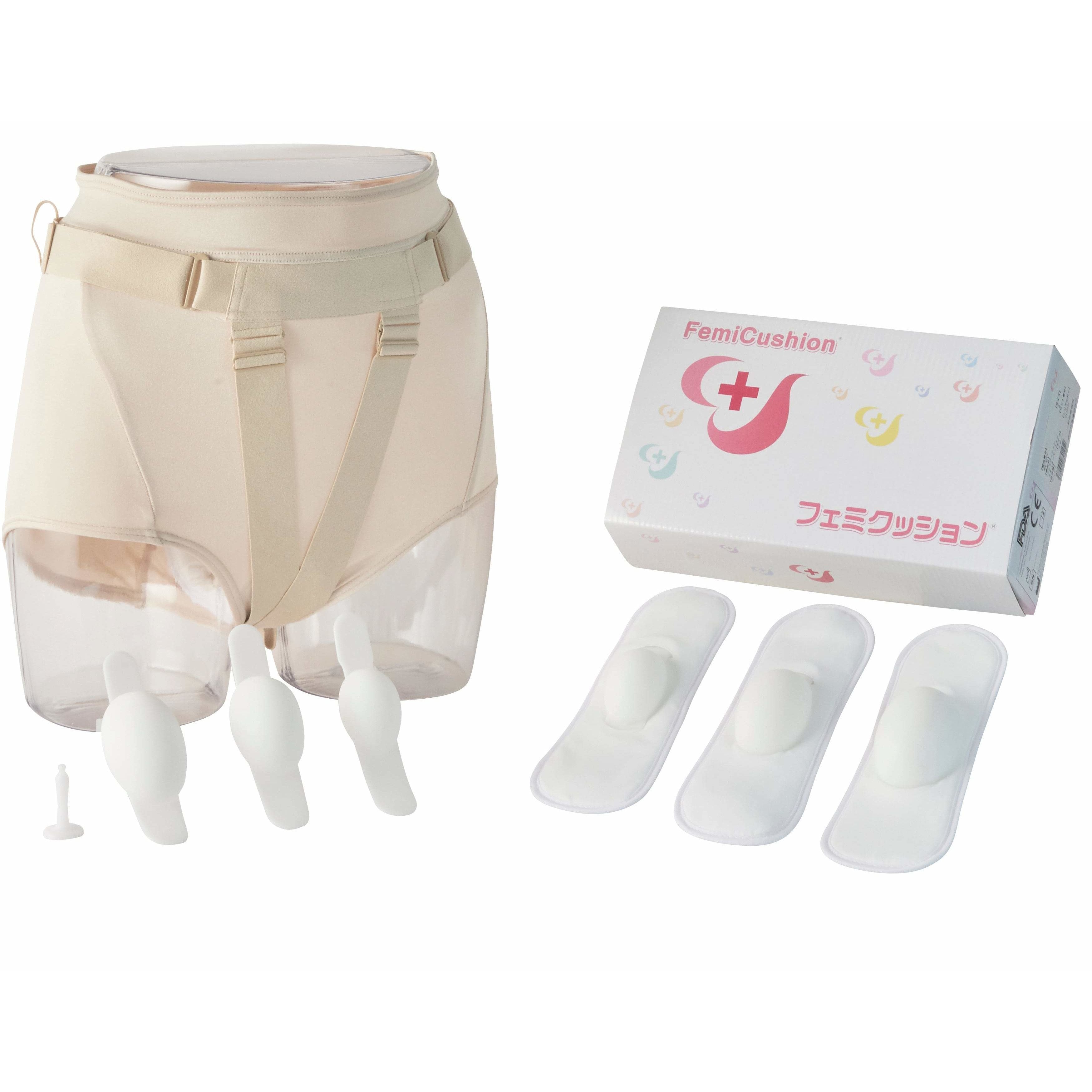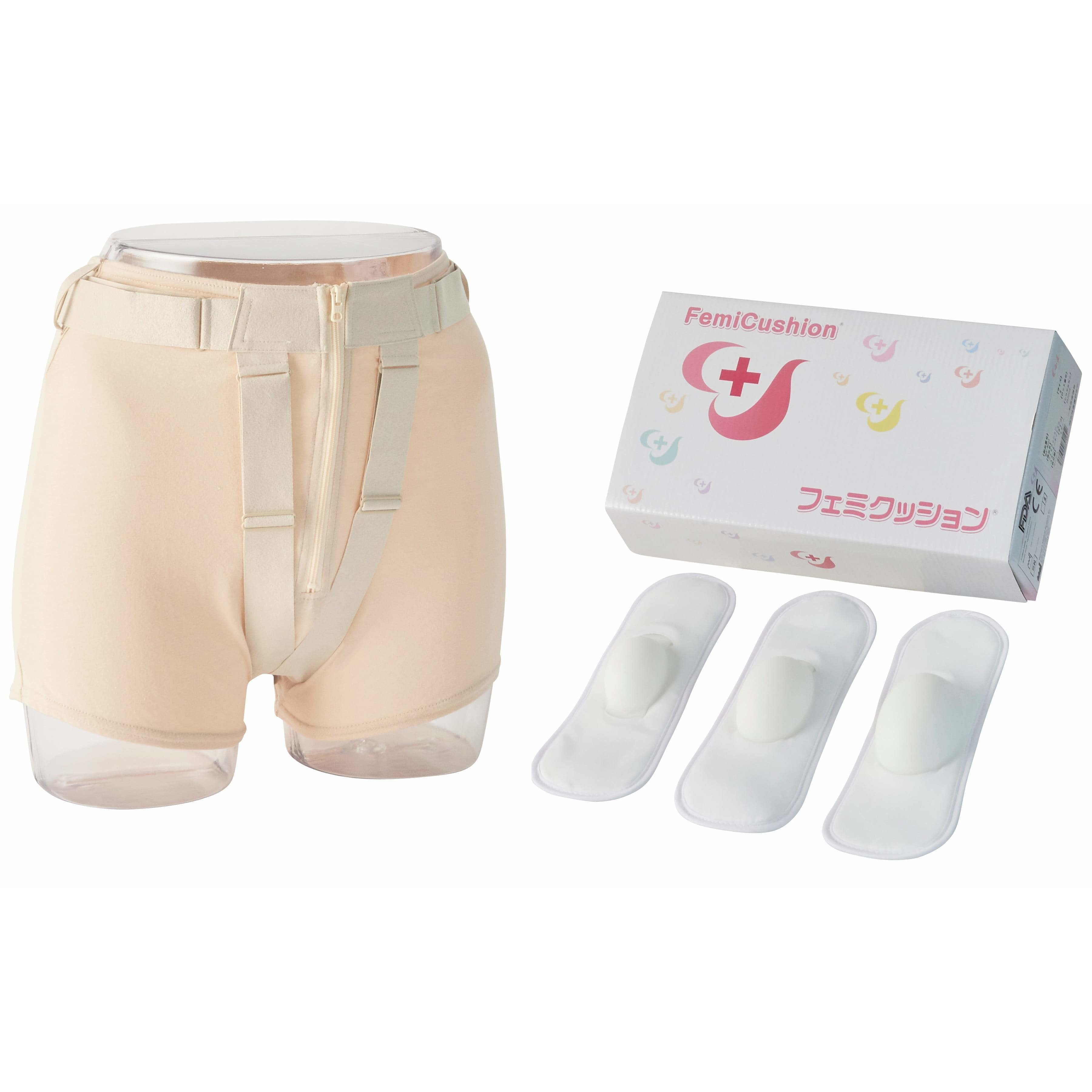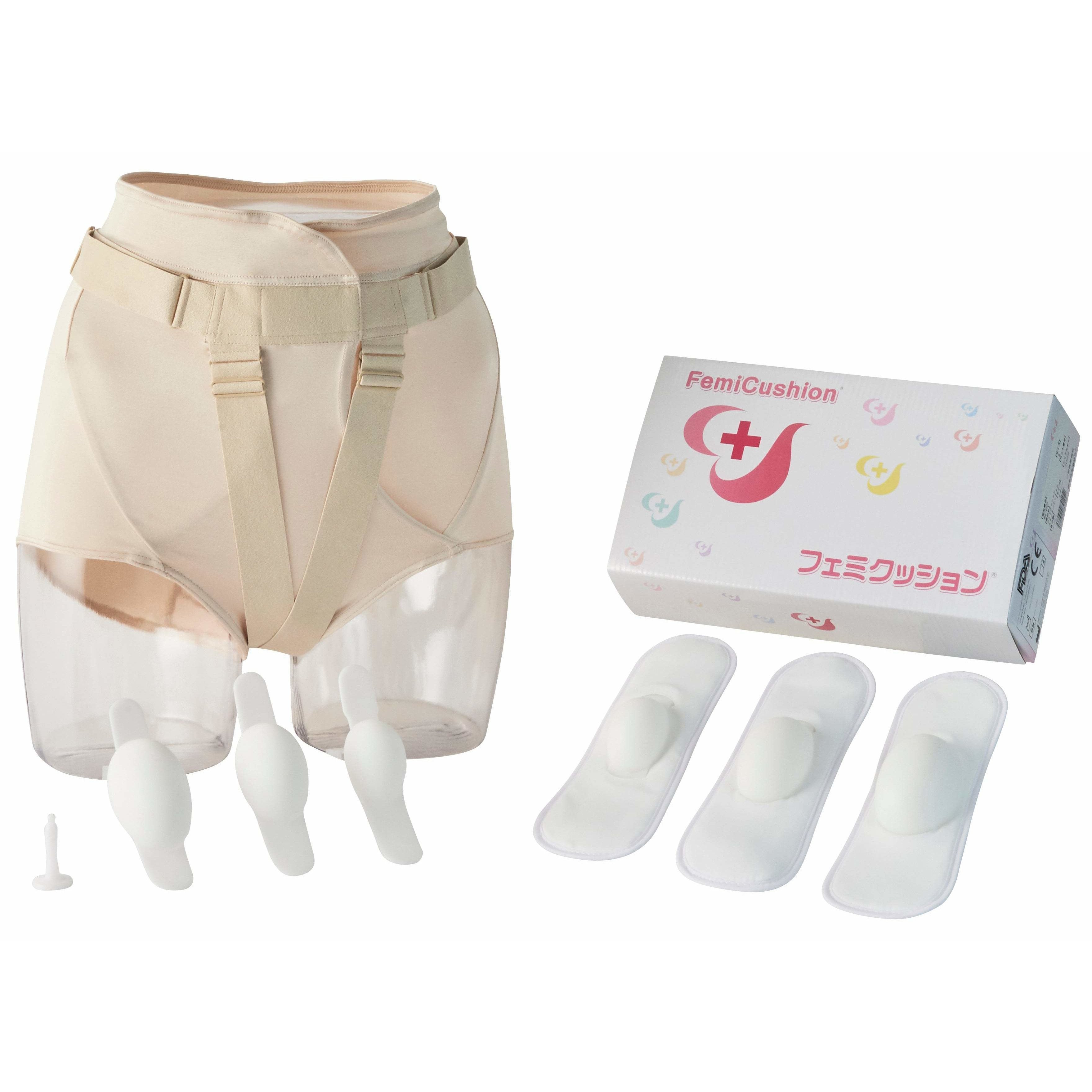Pelvic Posture Cushion for Pelvic Organ Prolapse
Summary
Table of Contents

Pelvic pain refers to symptoms arising from different conditions affecting the reproductive, urinary, or digestive systems or from muscles and ligaments in the pelvic region. Although pelvic pain can occur in people of all sexes, it typically refers to pain in the pelvic region of females (or the region of the body housing the female reproductive organs).
Pelvic pain can be acute or chronic and occur for various reasons, but whatever the cause is, it can be highly uncomfortable and distressing. Posture pelvic cushions can help manage pelvic pain. These cushions help relieve pressure and provide angled support when you are sitting. This article will explore what posture cushions are and how they can help with pelvic or hip pain.
The different types of pelvic pain
Pelvic pain can be dull or sharp, intermittent or constant, and acute or chronic, depending upon the cause. Pain can also be mild, moderate, or severe. In some cases, the pain can spread to your lower back, buttocks, and thigh. Sometimes, people might experience pain in their pelvic regions when trying to urinate or having sexual intercourse.
Pelvic pain, especially in females, might occur due to conditions like:
- Pelvic organ prolapse
- Adenomyosis (a condition where the endometrial tissues grow into the uterine wall)
- Ectopic pregnancy
- Endometriosis
- Menstrual cramps (dysmenorrhea)
- Miscarriage (before the 20th week)
- Intrauterine fetal death
- Mittelschmerz (ovulation pain)
- Ovarian cancer
- Ovarian cysts
- Pelvic inflammatory disease (PID)
- Uterine fibroids
- Vulvodynia
Pain in the pelvic region can also be caused by:
- Appendicitis
- Colon cancer
- Constipation
- Crohn's disease
- Diverticulitis
- Fibromyalgia
- Inguinal hernia
- Painful bladder syndrome
- Intestinal obstruction
- Irritable bowel syndrome
- Kidney stones
- Past physical or sexual abuse
- Pelvic floor muscle spasms
- Prostatitis (inflammation of the prostate)
- Ulcerative colitis
- Urinary tract infection (UTI)
Pain and discomfort from pelvic organ prolapse
The female reproductive organs located in the pelvis are supported by various muscles and ligaments. Sometimes, certain bodily stresses that women go through, such as pregnancy, difficult labor and childbirth, etc., the muscles and ligaments in the pelvic region get stretched and weakened. This can cause the pelvic organs to slip out of their position and lead to a condition called pelvic organ prolapse.
Pelvic organ prolapse is typically characterized by:
- A feeling of heaviness in the lower abdomen
- A dragging discomfort inside your vagina
- Feeling or seeing a bulge or lump in or coming out of your vagina
- Discomfort during sex
- Difficulty in urinating.
- Stress Incontinence
Often pelvic organ prolapses are asymptomatic. You will only get to know about the condition after a routine pelvic exam or cervical screening.
Pros of using the pelvic cushion
The pelvic posture cushion is developed to help you sit with your spine in its natural, balanced position. The cushion ensures that your hips are placed above your knees, thereby relieving stresses on your lower spine. It also helps relax your back. Here are the benefits of pelvic cushions:
- Provides pain relief: It helps reduce pressure on your spine and relieve pain in the lower back and pelvic region.
- Gives gentle support: It provides gentle support to the lower spine.
- Helps Improve posture: It helps you sit in an upright position.
- They are portable: You can use this cushion anywhere you want. You can carry it while driving, to work, or even on a picnic!
- Available in different shapes and sizes: Posture cushions are available in different shapes and sizes so that you can pick one according to your need. They will help provide support to targeted regions and relieve hip pain.
How does a pelvic cushion help with pelvic pain?
The pelvic cushions are ergonomically designed to help distribute the load on the spine and pelvic regions so that the muscles and ligaments are spared from constant pressure while you are sitting. Anecdotal evidence suggests that sitting on a pelvic cushion while you are pregnant can help reduce the risk of developing pelvic organ prolapse.
Can I use a pelvic cushion for pelvic organ prolapse?
Yes, pelvic cushions can help with pelvic organ prolapse making it more comfortable when sitting and managing the painful symptoms.
Additionally to a pelvic posture cushions, we also recommend using a type of prolapse support belt like FemiCushion. FemiCushion is particularly beneficial for women who cannot use pessaries or do not want to opt for surgical treatment. What sets FemiCushion apart from other pelvic support belts on the market is that it uses a soft silicone cushion to physically provide support to the prolapse. The cushion is placed against the against the vaginal opening preventing prolapsed organs from bulging out of the body. This helps relieves discomfort and makes sitting pain free and comfortable. FemiCushion has helped countless women around the world regain the ability to live their day to day lives free of prolapse symptoms.
How does FemiCushion Work? Alternative Treatment for Prolapse

FemiCushion is a new medical device designed to treat and relieve painful symptoms of all types of pelvic organ prolapse including uterine prolapse, bladder prolapse, enterocele, and rectocele.
Using a one-of-a-kind silicone cushion, this prolapse remedy provides gentle support from beneath the vaginal opening, holding organs inside and preventing them from bulging from the vagina. The cushion is inserted into a holder that absorbs urine and other discharge, which is then affixed to a supporter worn like underwear the keeps the cushion steady. All three components work together to provide prolapse relief. FemiCushion is only worn during the day (about 8 hours) and taken off at night.
MRI Evaluation of the Effectiveness of Femicushion
for Pelvic Organ Prolapse
Images are examples of MRI measurements, In experiments with (a) cystocele, (b) uterine prolapse, (c) enterocele and rectocele, and (d) complete eversion, the left image is before using FemiCushion, and the right image is after using FemiCushion.
A clinical study examines patients with stage 3 or 4 POP who underwent treatment using FemiCushion for approximately one month and received a diagnostic MRI. In the study, significant elevation of three sites, the apex of the vagina and anterior and posterior vaginal walls were noted with the use of FemiCushion. The effectiveness of FemiCushion is due to a combination of factors, such as the elevation of the prolapsed organs, as perineal support, and reinforcement of the damaged pelvic floor.

Supervising Doctor of This Article

Koichi Nagao, MD PhD
Professor, Department of Urology, Toho University Faculty of Medicine
Director of Urinary tract reconstruction center, Toho University Omori Medical Center
Director of Reproduction Center, Toho University Omori Medical Center
Professor Nagao specializes in plastic surgery in the field of reproductive medicine. He completed eight years of plastic surgery training at Showa University before majoring in urology at Toho University. With his meticulous surgical techniques and careful examinations that combines urology and plastic surgery, Professor Nagao became a Board Certified Specialist with multiple associations including the Japanese Urological Association, the Japan Society for Reproductive Medicine, and the Japanese Society for Sexual Medicine.
The suggested Products

FemiCushion Standard Deluxe Kit
$299.99

Conjunto de FemiCushion Lite
$249.99

Kit FemiCushion EasyOpen Deluxe
$299.99
